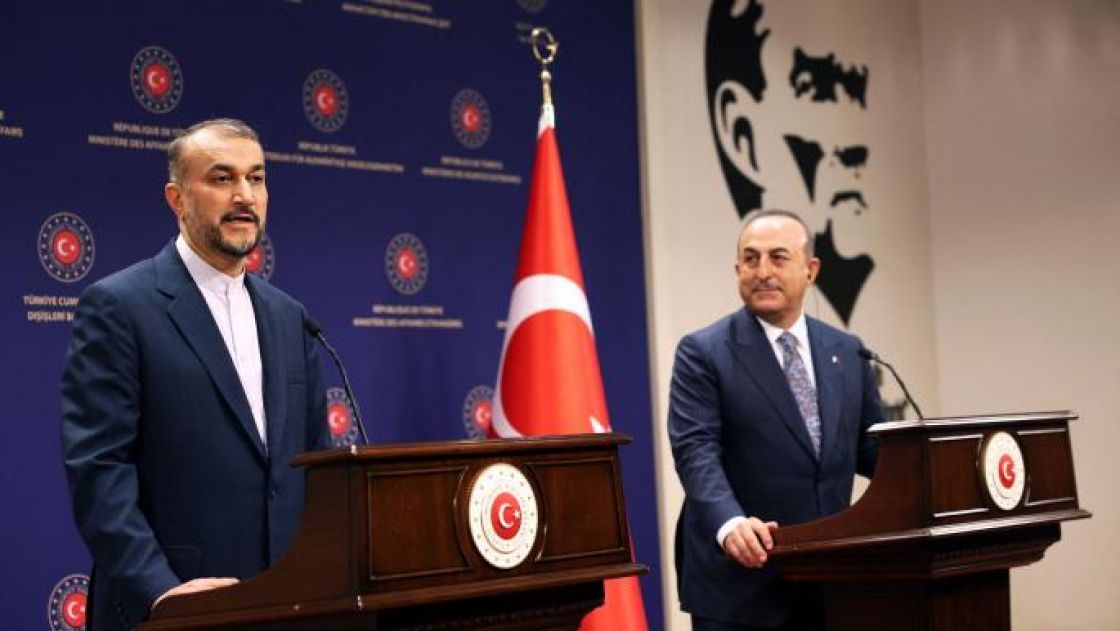- Articles
- Posted
What Does Iran’s Official Joining of the Syrian-Turkish Settlement Process Mean?
On January 22 (original Arabic, English version dated January 31), the Kassioun Political Editor published an article titled: “What is Iran’s Position on the Syrian-Turkish Settlement?” In that article, we refuted the massive media campaign that tried to promote the idea that Iran is hostile to the Syrian-Turkish settlement process.
The aforementioned article recalled official Iranian statements preceding the Tehran Summit of the Astana tripartite, held on July 19, and up to the statements of the Iranian Foreign Minister during his tour that included Lebanon, Syria, and Turkey, on January 13, 14, and 17 of this year, respectively.
The article also analyzed essential matters within the international and regional situation, confirming that Iran’s interest is in line with this settlement and not against it, and we concluded the following:
So let us try to answer the following question: “Why does the media insist on saying that Iran is upset?”
It may be related to one or a combination of the following factors:
First: Constantly suggesting Iran’s refusal of the settlement with Turkey gives the extremists, within the regime in particular, margins to play within before the close popular base. If it is understandable that this base is not receptive to rapprochement with Turkey, it still hopes that through it there would be an improvement of the miserable situation and being the disaster to an end. However, if there are suggestions that Iran is against a settlement, this may encourage portions of this base to reject the settlement, so that their rejection will be used in internal balances, as well as in resisting the Astana efforts to push towards a settlement.
Second: This is definitely not the first attempt to say that Russia and Turkey are on one side and Iran is on the other contradictory side within the Astana tripartite. This is despite the fact that time and again facts have proven this is not the case, and that there are undoubtedly differences, but there are also understandings. More importantly, there is an ability to reach understandings and continuously raise their level (and the main credit for that may be due to the US’s foolishness and arrogance, and the depth of its crisis that does not allow it to offer anything to anyone). Portraying the matter as Astana itself being divided between two camps is undoubtedly beneficial for the West. However, perhaps there is more than that, and it is a Zionist dream in particular, that the track of a Syrian-Turkish rapprochement be somehow transformed into a project sponsored by the West, and of course it will be a project with a completely different direction in that case. What is certain is that the dreams of the Zionist will be reduced with time, and after some time might not go beyond its racist walls.
It did not take too long for the realities to prove what we said in the aforementioned article. On January 31, Russian Foreign Minister Sergey Lavrov announced that “a relevant agreement had been reached” on “involving Iran on further meetings on the Turkey-Syria settlement”, and added that he considered that “absolutely logical that any further communication on bringing relations between Turkey and Syria back to normal will also involve Russia and Iran”.
He also added: “As for the timeframes and specific formats… be it at the military, diplomatic or any other level, they are currently being specified”, and stressed that “it is necessary to move step by step, so that every step forward should yield specific… results”.
Two days earlier, on January 29, Turkish President Erdogan made a similar statement, in which he said: “Let’s come together as a trio, Russia, Turkey, and Syria meet. We can even add Iran to this. Let’s have our talks in this way and peace will come to the region, and the region will get rid of the problems that it is experiencing. We got and are still getting and will get results in this regard”.
An Additional Step Forward
Iran’s official joining of the Syrian-Turkish settlement process does not in any way mean that it was not part of it, even an official part too, starting from the Tehran summit itself. Nevertheless, this joining, in its diplomatic and political sense, eliminates any doubts and irreversibly ends the unfounded argument that Iran is excluded from the settlement, or that it is hostile to it.
Additionally, this joining confirms what Kassioun has repeatedly said, that this settlement is a joint project of the entire Astana tripartite, and not a Russian-Turkish bilateral project as the mainstream media tried to portray the issue.
What is more important than silencing the Western and Western-supported media, after announcing Iran’s official joining of the settlement process, is that this will mean an additional narrowing of the margins for those who maneuver and try to evade the forthcoming decision-making events, whether on the side of the regime’s extremists or on the side of the opposition extremists.
This process, as one of the essential action paths of the Astana tripartite within the framework of upgrading from the level of military coordination to the level of political coordination towards a comprehensive solution in Syria according to UNSC Resolution 2254, becomes more important and clearer when one looks at the transformation of the Western “Small Group”, (at least temporarily), into a “mini small” group, in which neither Turkey nor the Arab countries that had previously regularly participated in the American-led meetings, will participate. This is what another article by Kassioun’s Political Editor looked at, which was titled: “Has the ‘Small Group’ Become the ‘Mini Small Group’?”, published on January 26 (original Arabic, English version dated January 30).
In conclusion, all these data and indicators point to one result, which is that this process is relentlessly moving forward, despite all attempts to obstruct and sabotage, and towards reaching “tangible results”.



 Political Editor
Political Editor